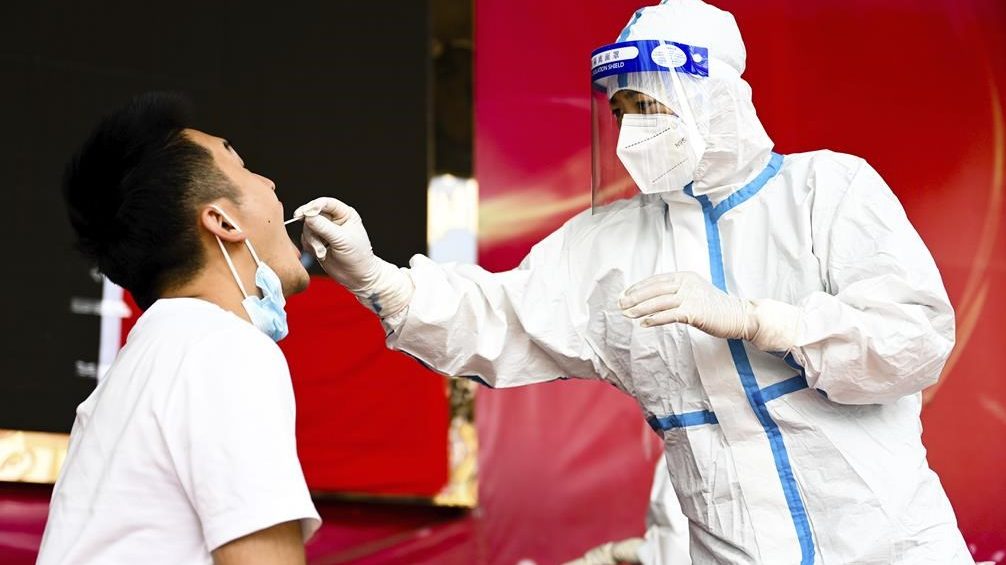Chinese authorities announced Tuesday mass coronavirus testing in Wuhan as an unusually wide series of COVID-19 outbreaks reached the city where the disease was first detected in late 2019.
Wuhan, a provincial capital of 11 million people in central China, is the latest city to undergo city-wide testing. Three cases were confirmed there on Monday, its first non-imported cases in more than a year.
China has largely curbed COVID-19 at home after the initial outbreak that devastated Wuhan and over time spread to the rest of China and globally. Since then, authorities have tamped down and controlled the disease whenever it pops up with quick lockdowns and mass testing to isolate infected people.
The current outbreaks, while still in the hundreds of cases in total, have spread much more widely than previous ones, reaching multiple provinces and cities including the capital, Beijing. Many of the cases have been identified as the highly contagious delta variant that is driving a resurgence in many countries.
The National Health Commission said Tuesday that 90 new cases had been confirmed the previous day, 61 locally spread ones and 29 among people who had recently arrived from abroad.
Most of the local cases are still in Jiangsu province, where an outbreak started at the airport in Nanjing, the provincial capital, and has spread to the city of Yangzhou, 105 kilometers (65 miles) away. Authorities reported 45 new cases, five in Nanjing and 40 in the city of Yangzhou, which was conducting a second round of mass testing,
Five other provinces and the cities of Beijing and Shanghai reported new local cases in the single digits. In Shanghai, the nation’s largest city, a driver working at one of its two main airports tested positive. Beijing has reported a total of five cases in recent days.
Government-affiliated scientists have said that Chinese vaccines are less effective against the new strains of the coronavirus but still offer some protection. Only Chinese vaccines are currently being given in China, where authorities say more than 1.6 billion doses have been administered.
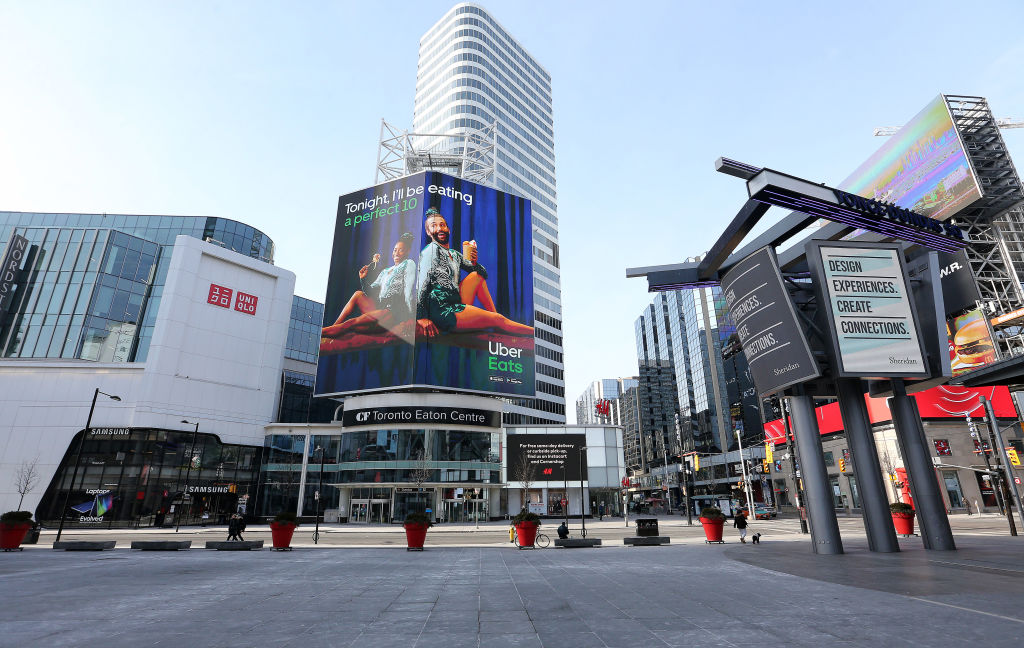
Toronto police say four people are in custody following reports of a group of people allegedly armed with knives were seen approaching people at Yonge-Dundas Square.
Police said they were called to the square late Monday evening.
When officers arrived at the scene, they took four people into custody.
Two firearms and one knife were recovered from the area, police said.
There were no reports of injuries.
Investigators said they continue to look into the incident.
Anyone with information is asked to contact the police directly. Tips can also be left anonymously with Crime Stoppers.

Ontario Premier Doug Ford is set to make an announcement this morning about the future of the former Ontario Place theme park.
Ford will appear with Culture Minister Lisa MacLeod and Toronto Mayor John Tory.
The Progressive Conservative government has been seeking to redevelop the Toronto attraction that was closed to the public in 2012 after years of financial losses.
Ford’s government has said it wants to make the space that first opened in 1971 an impressive attraction.
Former Toronto police chief Mark Saunders was appointed this spring as a special adviser to the province on its redevelopment of the park.
MacLeod has said the redevelopment will keep key features including Trillium Park, the Cinesphere Theatre and the pods.
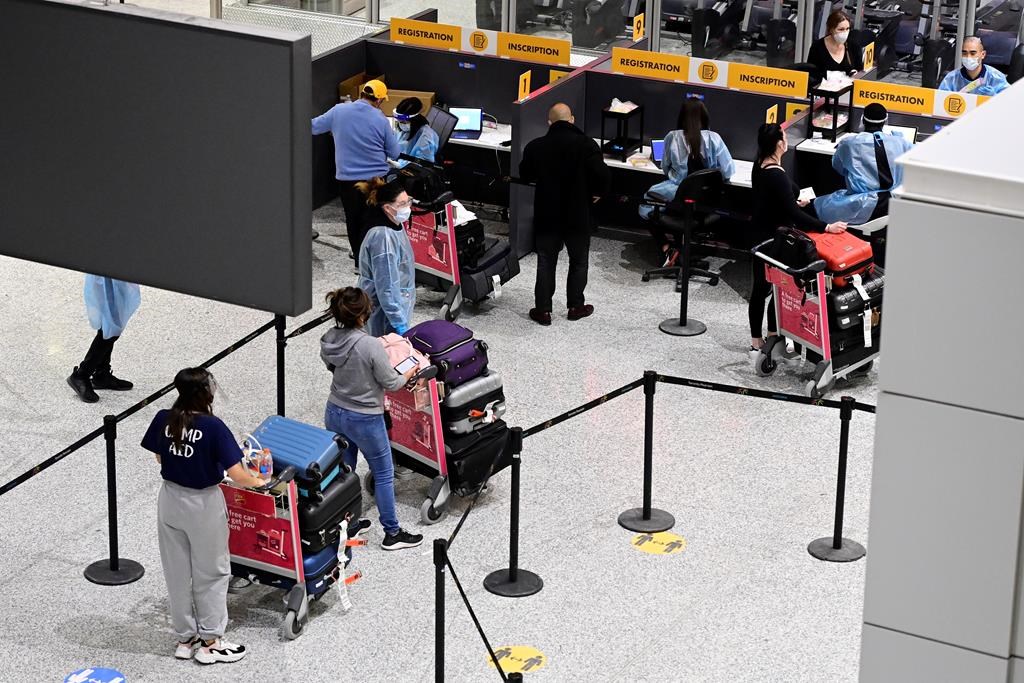
The federal Conservatives are urging the Liberal government to do more to ensure that Canadians who received two different doses of COVID-19 vaccines are able to travel internationally.
Tory health critic Michelle Rempel Garner has written a letter to Health Minister Patty Hajdu highlighting multiple reports of Canadians being barred entry to countries due to their mixed vaccinations.
The Calgary Nose Hill MP says in the absence of federal direction, provincial health authorities have begun to offer third doses to Canadians who need to travel where their vaccination status is not recognized abroad.
She says the Quebec Health Department is telling potential recipients the safety of this practice is unclear and that they should seek advice to weigh the risks of a third dose of the Pfizer-BioNTech or Moderna vaccines.
Rempel Garner is calling on the Liberal government to release federal guidelines on the issue of third doses so that Canadians can make safe, informed choices.
In the absence of data to support third doses, she says the government must release a plan to have a mixed vaccination status recognized internationally.
“Canadians listened to your advice and got vaccinated. Telling them what your government is doing to ensure that their vaccination status is recognized abroad is the very least you can do,” she says in the letter.
Rempel Garner’s letter follows a similar plea from Ontario Health Minister Christine Elliott earlier this week for Ottawa to work with the World Health Organization to ensure that mixing vaccines is internationally accepted as a complete vaccine regimen.
The U.S. has been reluctant to sanction the practice of following a Moderna shot with a Pfizer-BioNTech vaccine, or vice versa, while many European countries don’t recognize the Oxford-AstraZeneca shot made at the Serum Institute of India, which may impact Canadians who received it.
Several cruise lines have also said they won’t accept customers who have received different types or brands of vaccines.
Hajdu’s office did not immediately respond to a request for comment on Rempel Garner’s letter.
Prime Minister Justin Trudeau and Deputy Prime Minister Chrystia Freeland are among the many Canadians who received a mixture of COVID-19 vaccine doses. Trudeau and Freeland received Oxford-AstraZeneca as a first dose and Moderna as a second.
Freeland said last week that the advice allowing Canadians to get mixed doses was science-based, noting there is research that shows getting two different doses offers superior protection.
“As finance minister, I attended the G20 meeting in Italy earlier this month and there was certainly recognition of my double vaccination status there with the mixed doses,” she told reporters while speaking virtually in Whitehorse.

TORONTO – The Toronto Blue Jays have wrapped up an extended road trip down south and finally flown north – back home to Rogers Centre.
The Blue Jays are finally set to return to Toronto after the federal government granted the club a national interest travel exemption, and the team will host the Kansas City Royals on Friday night in their first game at their home stadium in nearly two years.
The Jays haven’t played at Rogers Centre since Sept. 29, 2019 – an 8-3 win over Tampa Bay – due to COVID-19 restrictions that included a U.S.-Canada travel ban.
Toronto played the shortened 2020 campaign at Sahlen Field in Buffalo, N.Y., then began this season hosting home games at its spring training site in Dunedin, Fla., before returning to the home of their triple-A affiliate in June.
“We’re going to have our own fans,” said Blue Jays manager Charlie Montoyo.
“Not that we didn’t have fans in Dunedin or in Buffalo, but it’s like these are all our fans, not fans from other places. It’s going to be awesome. Having a game like this and going into Toronto, it’s pretty cool. It’s like making a trade. We feel good about it.”
Blue Jays president Mark Shapiro says the team has also received approval to treat the stadium as an outdoor venue and allow up to 15,000 fans at games – about 30 per cent of its 49,286-person capacity.
Shapiro says the retractable roof will be open as long as the weather allows, and additional measures have been taken to ensure proper ventilation.
The Jays currently sit fourth in the American League East with a 51-48 record.
Before Friday’s first pitch is the MLB trade deadline, with a 4 p.m. ET cutoff for teams to make a trade in a push for the post-season.
Federal Immigration Minister Marco Mendicino said in a statement on July 16 that the decision to grant the exemption was made in conjunction with the Public Health Agency of Canada and local and provincial officials.
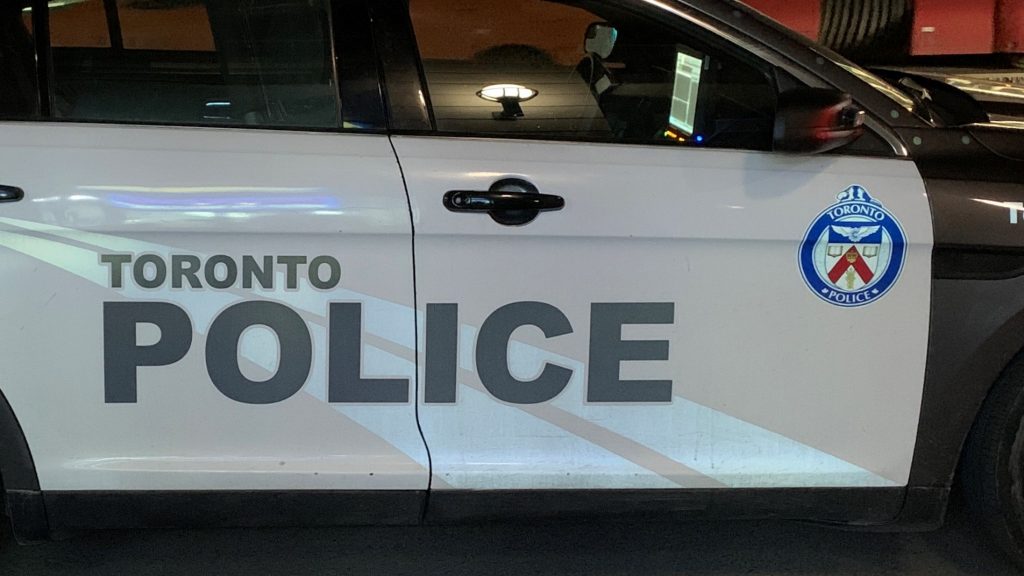
One man was seriously injured in a fight between a group of people near Yonge-Dundas Square in Toronto’s downtown core on Wednesday night.
Police were called to the area of Dundas Street East and Victoria Street shortly before 10:30 p.m.
One man was stabbed during the confrontation and taken to hospital with serious injuries. He is expected to survive.
Police say the victim was not apart of the original fight and had run over to intervene when he was stabbed.
There is no word on a suspect or suspects at this time as they fled the scene. Police say there were up to five people involved in the altercation.
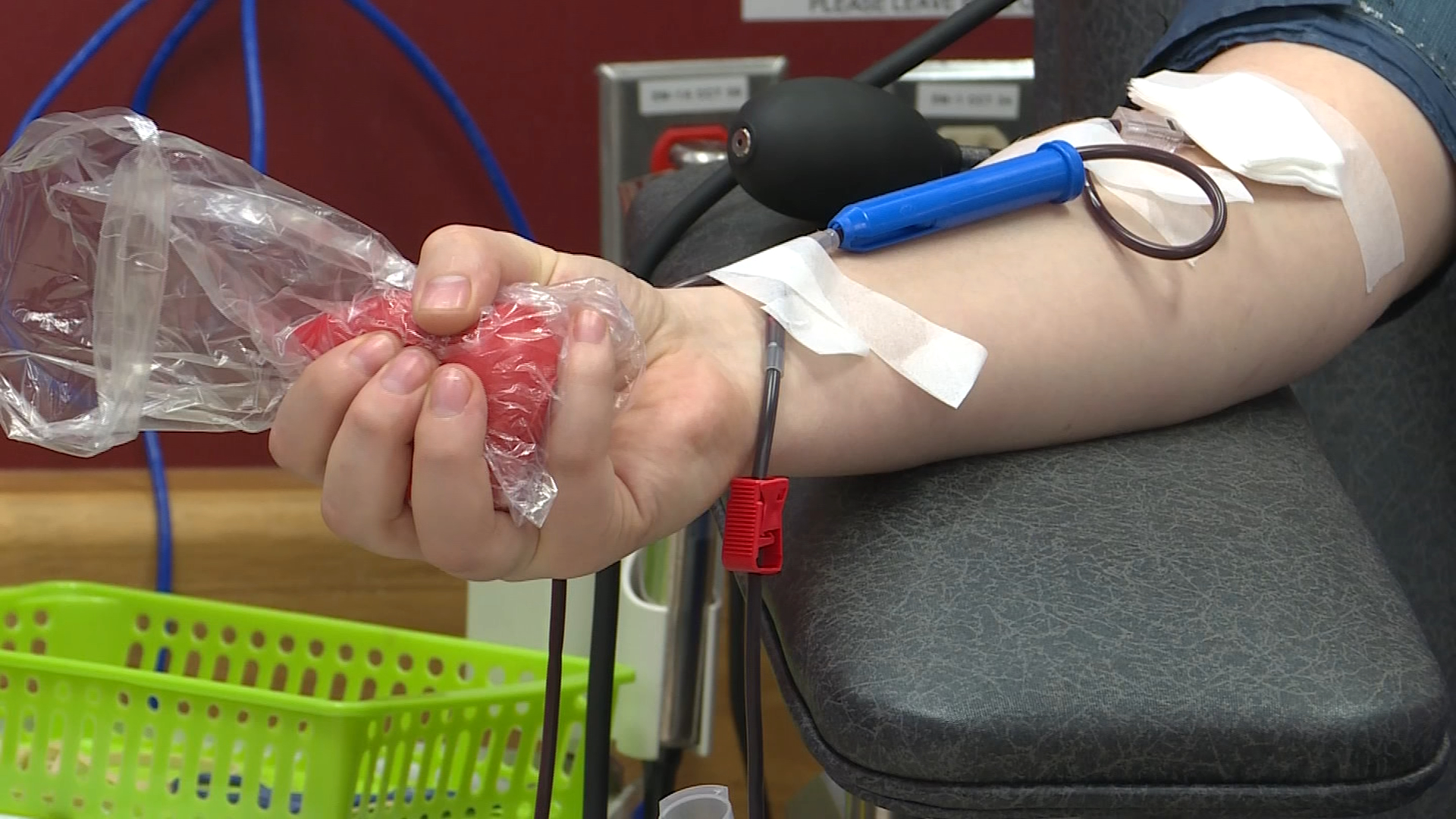
A return to a somewhat normal summer as COVID-19 restrictions are eased is putting a strain on Canada’s blood supply.
Several provinces have started lifting restrictions — most notably Alberta, British Columbia and Saskatchewan — and demand is up as a result.
“As provinces slowly open up, there’s some return to normal activities. Hospital demand is increasing,” said Tracy Smith, the Prairies and Northwest Territories donor relations director for the Canadian Blood Service.
“You can imagine that they are trying to catch up with some of the backlogs, some of those surgeries that were put on hold during the pandemic. They’re trying to get those in … (and) blood products are becoming more in demand.”
The need for blood products tailed off dramatically 16 months ago as the pandemic brought travel to a near standstill and all but the most critical surgeries were cancelled.
At the same time, Canadian Blood Services wasn’t able to accommodate as many donors because of physical-distancing requirements at clinics, so the two balanced each other out.
About 400,000 of Canada’s 37 million population give blood on a regular basis.
Canadian Blood Services operates a national inventory that allows products to be regularly shifted around the country to meet hospital and patient needs.
But the inventory has a shelf life — a year for frozen plasma, 42 days for red blood cells and five days for platelets — so it takes some work to ensure supply continues to meet demand.
Smith said the blood agency has made some changes in anticipation of an increased need, including extending hours at some donation centres and mobile clinics, but many pandemic safety precautions remain in place, including limiting the number of donors allowed inside at one time.
“We’re only accepting appointments from donors. We’re not accepting walk-ins in order to manage our physical distancing,” Smith said. “It’s more important for donors to fill the appointments for us.”
Smith couldn’t say how much the demand for blood has increased in the last six weeks, but she said the need is evident in supplies of O negative blood, the universal blood type used primarily in emergency rooms.
“We have just over four days supply and at times it’s dipped to between three and 3 1/2,” she said. “That gives you an indication of the increase in demand that we’ve seen.”
A Calgary vascular and trauma surgeon said operating rooms have been a lot busier in the last six weeks.
“There’s certainly no slowdowns. It’s more in the other direction trying to catch up,” said Dr. Paul Cantle.
“At certain times of the year, (blood supply) is always a concern, but very few of us have ever run into a situation where we haven’t had what we’ve needed at the end of the day.”
Cantle said people go out more in the summer, drive more on highways and spent more time in physical activity, so it’s not a surprise blood demand has gone up.
“It was inevitable. People just try and get out there and enjoy their summers: getting out on their ATVs and their horses and their mountain bikes,” he said.
“It’s the same every year, but it’s maybe just a little more extreme this year with people trying to make up for lost time.”
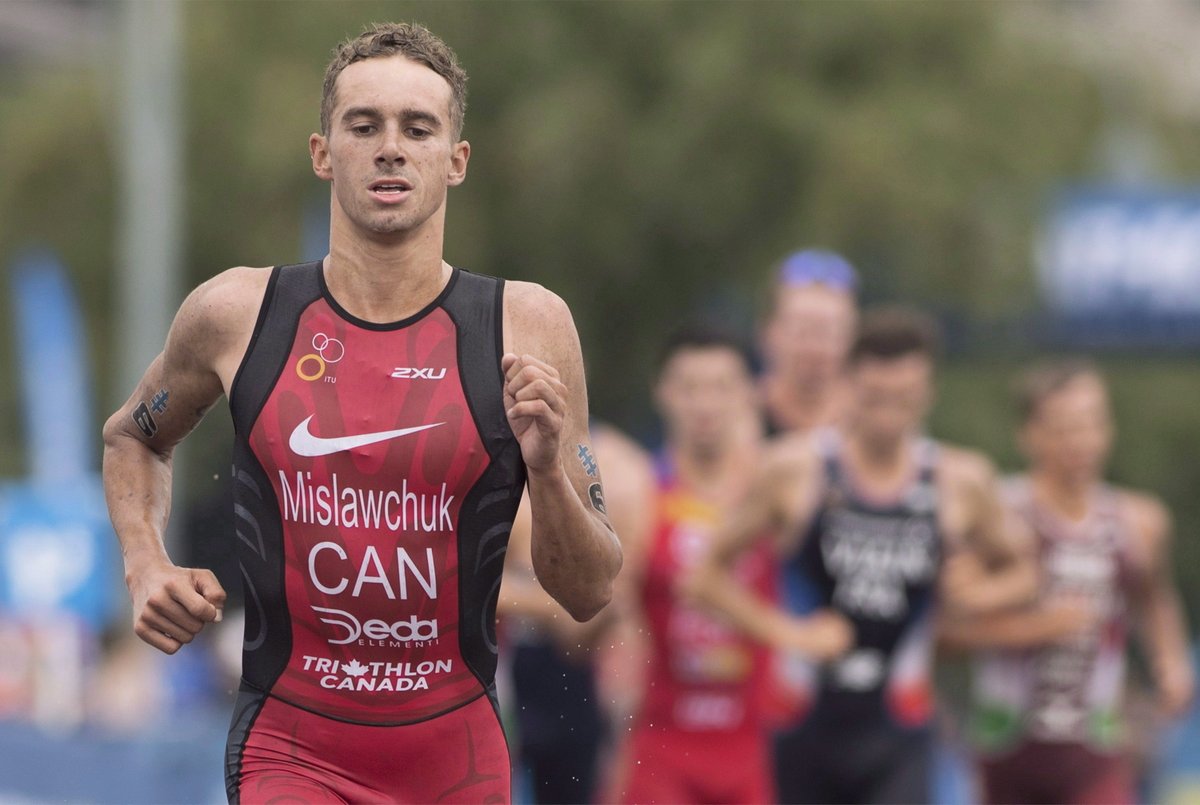
TOKYO — Two Canadian athletes have made the tough decision to withdraw from their competitions citing injuries.
Canada’s Tyler Mislawchuk withdrew from the triathlon mixed team relay at the Tokyo Olympics after suffering an achilles injury earlier this week.
Team Canada issued a statement on Wednesday saying that the Manitoban will be replaced by Gatineau’s Alexis Lepage who will be making his Olympic debut.
“Since the completion of the individual race, we have been working with our medical team to mitigate the irritation in his achilles tendon, but unfortunately there is still some risk of further damage to the achilles should he start,” said Triathalon Canada’s high performance director Eugene Liang in a release on Wednesday.
The 26-year-old was hoping to have the chance to line up with his teammates and support them, but knew pulling out would protect him long term.
“It’s devastating not to have the opportunity to line up with my teammates this weekend in the Olympic debut of the mixed team relay due to injury,” said Mislawchuk. “It will be tough watching from the sidelines and not being able to contribute.
“That said, this also presents an opportunity for my friend and training partner Alexis to compete in the Olympics. I know he is up to the task and will make Canada proud. I will be supporting my teammates in their final preparations. and will be cheering them on with the rest of Canada.”
Not long after Mislawchuk’s withdrawal, Equestrian Canada and Cannington, Ontario’s Jessica Phoenix made the tough decision to withdraw her horse, Pavarotti, from the competition.
Pavarotti is said to have sustained an injury during his final preparation gallop on Tuesday morning and the team felt it was best not to present him at the first eventing horse inspection on Thursday.
“We were so excited to see Pavarotti finally take on Olympic competition but horse health and safety remains priority number one,” said Eventing Chef d’Équipe, Fleur Tipton in a release. “We are thankful that Pavarotti’s injury is minor and eternally grateful to his care team for ensuring his comfort and ability to fully recover. Jessica and Pavarotti are a team for the ages and we fully support them both through this heartbreaking turn of events.”
Phoenix and Pavarotti will be replaced by Dunham, Quebec’s Colleen Loach and Qorry Blue d’Argouges.

Canada has its first rowing medal at the Tokyo Olympics.
Victoria’s Caileigh Filmer and Hillary Janssens of Surrey, B.C., took bronze on Thursday in the women’s pair with a time of six minutes 52.10 seconds.
The 2018 world champions finished behind the gold-medal winning duo of Grace Prendergast and Kerri Gowler of New Zealand (6:50.19) and the Russian Olympic Committee’s Vasilisa Stepanova and Elena Oriabinskaia (6:51.45).
Conlin McCabe of Brockville, Ont., and Kai Langerfeld of North Vancouver, B.C., were the other Canadian rowers in a final Thursday, finishing fourth in the men’s pair on the 2,000-metre course at Sea Forest Waterway.
Canada’s women’s eight will race for a gold Friday.
The country’s rowers are looking to rebound after a disastrous showing at the 2016 Rio Games that saw the program secure just one medal.
The Canadians qualified 10 boats for Tokyo — the most since the 1996 Olympics in Atlanta — and have a gender-neutral team for the first time in their history.
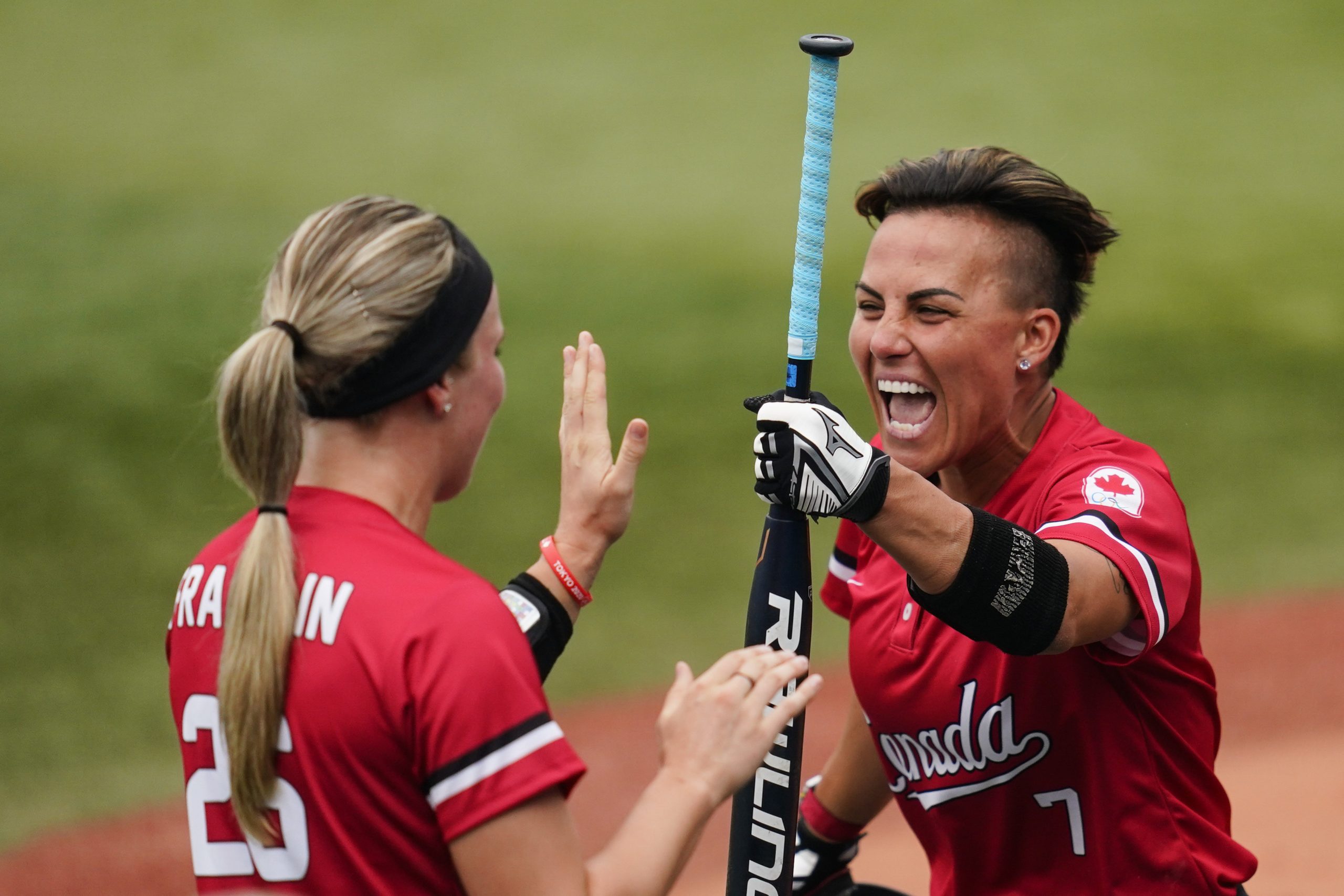
YOKOHAMA, Japan — Canada has won its first-ever Olympic softball medal.
Kelsey Harshman drove in the go-ahead run on a sacrifice fly in the fifth inning as the Canadians beat Mexico 3-2 for bronze at the Tokyo Games on Tuesday.
Emma Entzminger added two RBIs to secure a podium finish at Yokohama Baseball Stadium, some 13 years after the program’s agonizing fourth-place showing at the 2008 Beijing Olympics.
Four veterans from that team arrived at these Games looking for redemption — Jenn Salling, Danielle Lawrie, Lauren Regula and Kaleigh Rafter.
And although left heartbroken when Canada’s gold-medal hopes were dashed with Sunday’s 1-0 extra-inning loss to Japan, they won’t go home empty-handed.
The United States and the Olympic hosts were set to meet in the final later Tuesday.
Canada took a 2-0 lead in the bottom of the second on Entzminger’s two-out single to left that scored Salling and Erika Polidori after a fielding error earlier in the inning.
Mexico responded with two outs in the top of the third, when Brittany Cervantes singled to left to score Sydney Romero.
The Canadians looked to go up 3-1 in the bottom half, but Victoria Hayward was cut down at home.
Mexico made it even in the top of the fifth when Suzannah Brookshire singled to right with two outs to bring Romero in from third.
But Canada pushed back in front for good in the bottom of the inning on a sequence that started with a Janet Leung infield hit and Hayward’s bunt single. Larissa Franklin bunted to advance the runners to second and third with one out and set up Harshman’s sacrifice fly to left that scored Leung.
The top-ranked Americans, who finished a perfect 5-0 in the round-robin portion of this six-team tournament, won three straight gold medals beginning with softball’s introduction as an Olympic sport in 1996 through 2004 before settling for silver in 2008 when Japan topped the podium.
Softball and baseball were dropped from the Games docket in 2012 and 2016, and won’t be part of Paris 2024, but both are expected to be back four years later in Los Angeles.
Conditions at the 34,046-seat venue in Yokohama on the west side of Tokyo Bay — minus fans because of COVID-19 — were more manageable, feeling like 30 C with the humidity after a string of sweltering days to open the Games.
Canadian chef de mission Marnie McBean, on the 25th anniversary of her own rowing triple gold, made up the country’s cheering section, sitting directly behind home plate with two flags and a drum.
Making the country’s first-ever appearance in Olympic softball, Mexico secured a spot in the third-place game with consecutive wins to close out its round-robin schedule, including Monday night’s 4-1 victory over Australia — the country that beat out the Canadians for bronze in 2008.
Canada was unable to qualify its baseball team for the 2020 Olympic baseball tournament after finishing fourth in 2004 and sixth in 2008.









